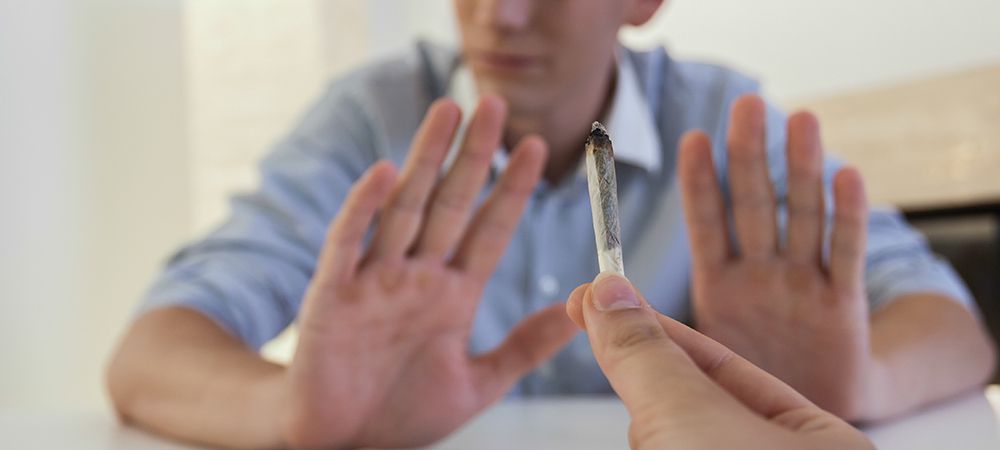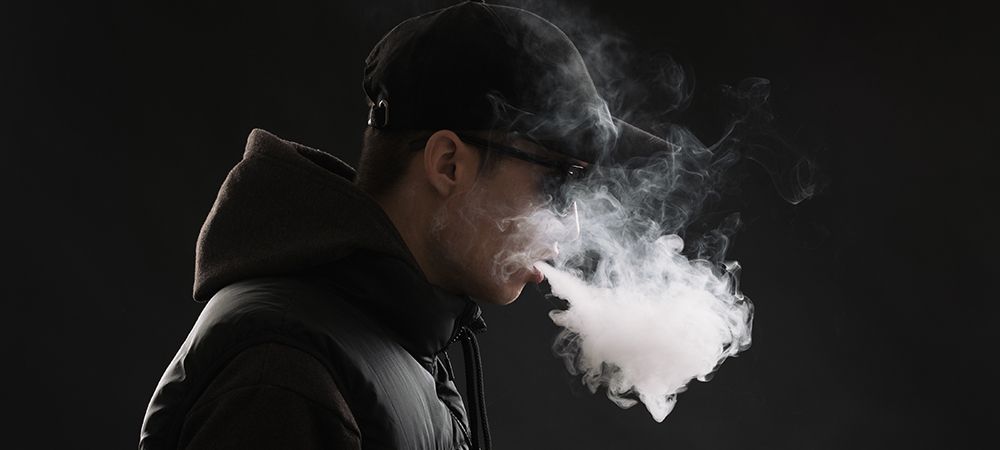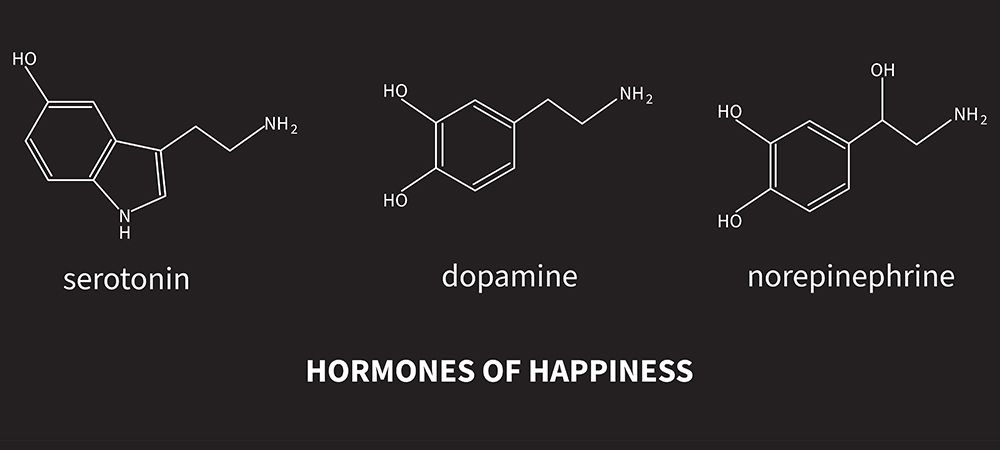What Happens When You Quit Smoking Weed
So, you finally decided to quit smoking weed or, let’s say; you’re seriously considering quitting. Either way, you’ll be doing yourself a world of favour when you finally drop the blunt. Of course, many people will disagree with our opinion, but we’re not going to debate that in this post. Instead, we’re here to discuss what happens when you quit smoking weed and why it happens.
Let’s cut to the chase, when you quit smoking weed, you’ll experience what we call marijuana withdrawal syndrome. Marijuana withdrawal is a growing concern among users, especially individuals who regularly imbibe cannabis products. And, the legalization of marijuana for recreational use in Canada doesn’t help matters.
That said, let’s take a quick look at what cannabis withdrawal syndrome is and what you should expect.
What Is Cannabis Withdrawal Syndrome?
Cannabis withdrawal syndrome is a condition that occurs in the aftermath of stopping cannabis use. This condition develops due to your body’s craving for the psychoactive effects of cannabis. It is characterized by specific negative symptoms, which can be physical and psychological.
Cannabis withdrawal syndrome is a relatively new concept, and professionals have only recently begun understanding it. Scientists widely believed that marijuana withdrawal effects are often not severe and did not initially consider them in the DSM. Thankfully, they added the syndrome to the recent edition of the Diagnostic and statistical manual of mental health issues released in 2013.
Marijuana Withdrawal Symptoms
According to DSM-5, the recent DSM edition, several symptoms accompany cannabis withdrawal syndrome. In addition, these symptoms can range from mild to severe. Nevertheless, they all cause unpleasant experiences. That said, below are some of the common cannabis withdrawal symptoms.
Cravings
Cravings are intense, almost irresistible desires to take a substance, marijuana in this case. When you crave marijuana, you’ll want it so badly; you’ll feel terrible for the entire time you don’t have it. Many marijuana addicts admit to experiencing strong cravings in the early days of quitting the substance. But, it doesn’t stop there. Even after quitting for a long time, you will still experience occasional cravings for marijuana.
Cravings are the hallmark of all addictions and their withdrawal symptoms. Regardless of the object of addiction, every form of withdrawal symptom starts with a desire to indulge in that thing again. However, by denying your body that act, you set off a chain of reactions and responses from your body which culminates in all the other withdrawal symptoms.
Irritability
Another equally common effect of marijuana withdrawal is Irritability. It can range from mild to excessive aggression. When experiencing this type of withdrawal symptoms, you’ll often find yourself on edge, and the slightest mishap can set you off. While irritation is a normal reaction to dropping marijuana, it may be problematic for the people around you.
Also, you want to seek medical help if your aggressive tendencies last for more than a week. A good idea is to go into therapy to seek psychological support for the problem. This way, you can learn to deal with the issue before it causes irreparable damage. Or worse still, make you do something you’ll regret.
Anxiety
Anxiety and paranoia are also common effects you may feel while undergoing the marijuana withdrawal phase. Feelings of anxiety are characterized by constant fear and uneasiness. Sometimes, you’ll not be able to explain it, but there’ll be a form of anxiousness lingering in your mind.
Interestingly, you can also experience anxiety as a side effect of using marijuana. Cannabis withdrawal is not the only situation that causes anxiety for people with a history of its usage. Individuals who still consume the substance can also experience anxiousness and fear as a side effect.
The distinctive paranoia occurs when cannabis heightens existing hidden fears. It doesn’t create new fears; most times, it only eliminates all forms of suppression of existing fears. Occasionally, it may cause scary hallucinations and make you see things that are not there. But, as with Irritability, it helps always to remember that anxiety is just a natural response to marijuana withdrawal.
Regardless, you should see a doctor if you continue to experience anxiety for an extended timeframe. If, after more than two weeks of quitting marijuana, you continue to experience anxiety, then something else may be wrong. For example, you may have an existing anxiety problem which the withdrawal symptom was only masking.
Depression
The main psychotic effect of marijuana is it causes feelings of ‘high’ in the user and makes them feel good. With continuous usage, you gradually develop a dependence on the substance. In such situations, you can only achieve or do certain things under the influence of the substance, and you feel low without the substance.
For many users, cannabis is the only substance that gets them high and improves their mood. So, when they finally quit smoking weed, they feel low for an extended duration, and depression quickly sets in. Depression is characterized by a persistent sad mood and reduced interest in otherwise enjoyable activities.
Also, ceasing marijuana after years of addiction may make you feel like a failure. You may like you wasted a significant part of your life on these substances. These negative feelings may also result in depression. However, they’re only normal for a short timeline. If you continue to have these feelings long after quitting marijuana, the situation may be worse than typical withdrawal symptoms.
Insomnia
Sleep disruption is also a common problem pot users experience when they drop the habit. You may experience difficulty falling asleep or have terrible dreams, which will keep you awake late into the night. These dreams and the inability to fall asleep typically last for a week. Any longer may be a bigger problem than cannabis withdrawal.
Occasional sleeplessness is also understandable for a few months after you quit smoking weed. However, you want to watch out for your mental health during this period. For that, you should endeavour to see a doctor and have them regularly check your progress and health.
Related Article: Cannabis Use Signs and Symptoms
Causes of Withdrawal Symptoms
You already know that the root cause for withdrawal symptoms is quitting marijuana. However, on some occasions, not taking as much dose as usual, can also trigger these symptoms. Nonetheless, why do you experience these symptoms, or why does quitting marijuana result in these conditions? First, let’s look at some of the science behind withdrawal symptoms.
Reduced supply of Dopamine
When you consume marijuana, a particular compound in the substance called THC goes to work in your brain. It causes rapid production of Dopamine in the body. Dopamine is a neurotransmitter that conveys messages between your nerve cells. Dopamine is mainly responsible for all pleasurable sensations in the body. In essence, it’s the ‘feel-good’ chemical produced by the body.
When you suddenly quit smoking weed, your body stops getting the prompts to produce Dopamine as usual. Then you begin to have an insufficient supply of Dopamine. When that happens, depression and lethargy set in quickly. This situation continues to grow until your body adjusts to not needing high Dopamine levels to function.
Irregular Production of Norepinephrine
Almost opposite to Dopamine, norepinephrine is the stress neurotransmitter. It is a hormone produced in the body when your body experiences events that put it under duress. This hormone increases the heart rate, triggers the release of glucose into the blood and improves blood flow to the muscle. It basically sets the gears for your reflexive responses to stress.
But when you have too much or not enough norepinephrine in the blood, it can cause problems. Having too much can cause anxiety, irritation and aggressiveness. Having too little can result in lethargy and slowed response to situations.
Regular consumption of marijuana influences the production of these two hormones in the body to induce euphoria. In addition, it affects the body’s ability to regulate anxiety and modulate pain. And, the more cannabis you consume, the more tolerance you build for it.
With continued usage, you ultimately begin to need more. Therefore whenever you quit smoking weed, your body which has come to depend on these hormones to function appropriately, suddenly stops producing them. It’s almost like cutting off fuel supply from an engine; the engine won’t work correctly. But luckily, your body begins to readjust the moment you stop, and it’ll be back to its normal state in no time.
Marijuana WIthdrawal Stages and Timeline
Marijuana withdrawal symptoms generally don’t last for more than a week. In some special situations, they may last up to three weeks. However, within the short time, you’ll experience them, the symptoms are often progressive and occur in stages. They don’t happen abruptly; one often leads to the other in succession. Knowing which stage you’re in will help you prepare for the next one.
Stage 1
The first stage of cannabis withdrawal begins immediately when you stop smoking weed. You’ll start experiencing discomfort the minute you miss a regular dose. It’ll begin with extreme cravings for the substance. You’ll have an overwhelming desire to smoke up, and the more time you spend without taking marijuana, the stronger the cravings.
By the end of the day, you’ll become restless, jumpy, and fidgety. Then, when it’s time to hit the bed, you may find sleep hard to come by as your body increases its demand for THC. Also, before nightfall, you may experience loss of appetite and mild anxiety. And alongside insomnia, you’ll experience excessive sweating over the night.
Please note that these symptoms are only for people dependent on marijuana. If you don’t have any form of addiction to marijuana, you may not experience any of these conditions at all. But, if you experience them, they’ll be very mild and easy to deal with. The first stage typically lasts for a day or at most two days.
Stage 2
At this point, your body is starved of THC and will play all tricks on you to get it. Stage two typically kicks off on the third day of quitting marijuana. At this point, all your negative emotions peak and throw you into a fit of anxiety, irritability and depression. You also feel a nagging craving for the substance. However, at this point, the cravings will not be extreme, only a desire to drown out all the negative emotions in marijuana smoke.
The second stage is where most people fail and relapse. Because your body tricks you into believing you only need one last smoke, and you’ll stop. Your mind suggests that you only need the last smoke to help you forget all your negative emotions, and after that, you’ll be fine.
However, this is the point where you have to be your strongest. The second stage is where you’ll experience the peak of the withdrawal symptoms. If you can get through safely, you can go all the way to full recovery.
Stage 3
After surviving the emotional storm of the second stage, your body finally begins to heal at the third stage. The third stage usually begins around the fourth day of abstinence. At this point, changes start to occur in your brain as it adjusts to dealing with lower levels of endocannabinoid activities. It also adjusts the production of Dopamine and sets you on your way to recovery.
You may experience some form of anxiety, loss of appetite and restlessness at this stage. However, they’ll be mild. You will also start getting more sleep and be calmer.
Stage 4
The fourth stage is pretty much the final stage of cannabis withdrawal. This stage occurs from day seven till whenever you make a full recovery. At this point, you’ll no longer experience anxiety, irritability and any of the severe symptoms. However, every once in a while, you’ll feel a desire to take marijuana.
But, it’s also relatively easy to relapse at this stage. You may relax thinking it’s over; then, before you know it, you’re back in your struggle with the substance. So, you don’t want to let your guard down at this stage, or you may end up failing miserably at quitting your addiction. Nonetheless, it helps to have external help in marijuana addiction treatment during the withdrawal stages.
Related Article: Addiction To Cannabis: 10 Signs You May Have A Problem
Conclusion
The decision to quit smoking weed always seems easy at first, especially if you have genuine reasons. However, sticking with that decision and suffering through the withdrawal phase takes dedication and grit. You have to want it and want it badly to achieve it. And to clear all doubts, quitting weed is safe and probably the best thing you can do for yourself now.
That said, if you need external help during your withdrawal phase, we’ll be happy to lend you a hand. Check out our marijuana addiction treatment services at Inspire Change Wellness Centre. Our addiction specialists can provide you with the support and medical intervention you need.





